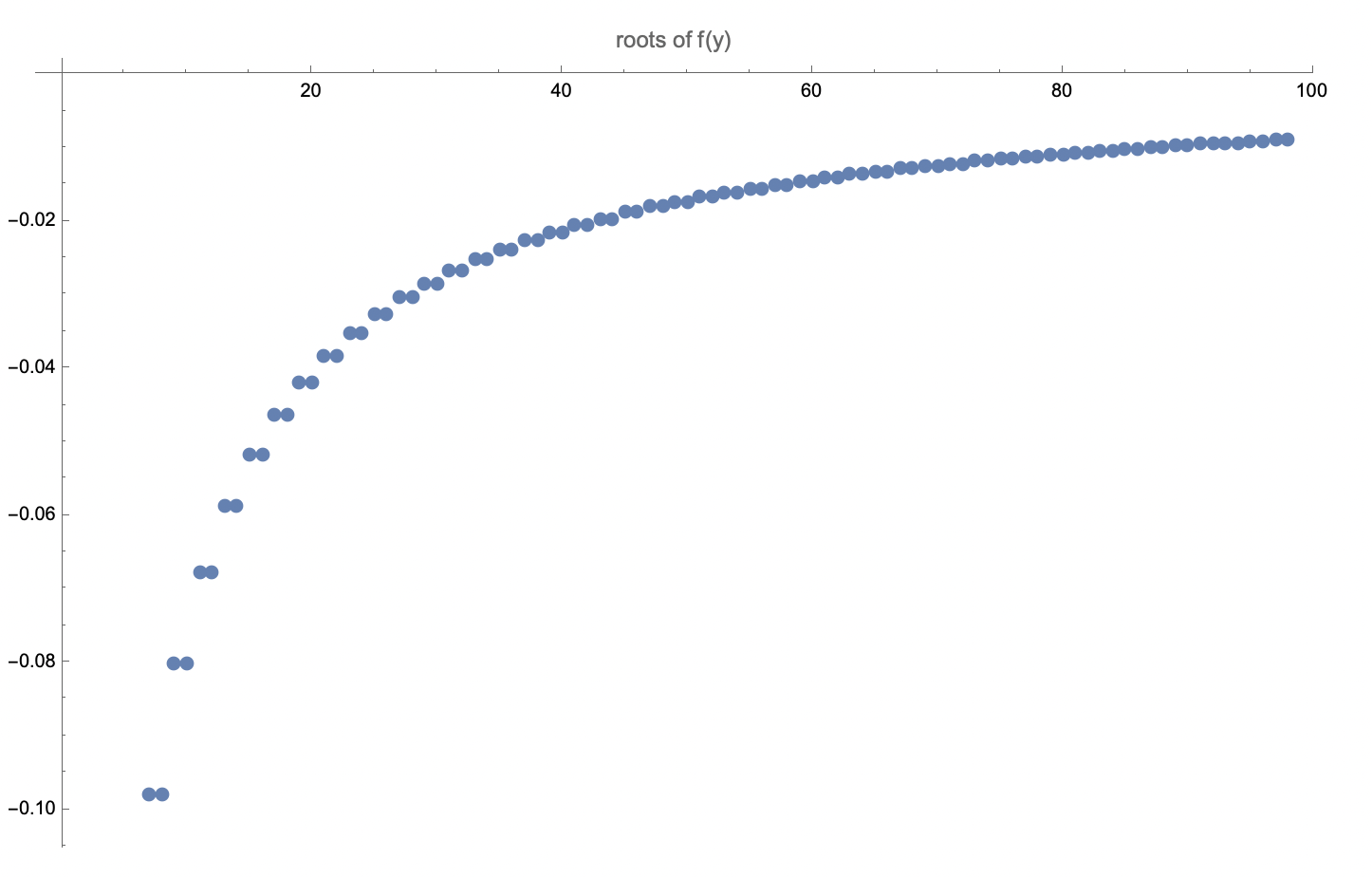I need the inverse Laplace transform $\mathscr{L}^{-1}$ or a nice upper bound on $\mathscr{L}^{-1}$ for the following function: $$f(y)=\frac{\left(\sum_i \frac{u_i}{y-a_i}\right)^2}{1-\sum_i u_i \frac{u_i}{y-a_i}}$$
Any advice?
This comes out of rank-1 correction to matrix exponential of diagonal matrix.
$\mathscr{L}^{-1}f=\langle\exp(t (A + B)) - \exp(t A), \mathbf{1}\rangle$ where $\langle M, \mathbf{1}\rangle=\sum_{ij}M_{ij}$, $A$ diagonal, $B=uu'$ is rank-1
Fedya gave a nice numeric algorithm to compute this, now I need higher-level understanding such as:
if $u_i=i^{-1.12}$, and $a_i=-2u_i(1-u_i)$, how fast does $\mathscr{L}^{-1}f$ decay? Reason for $-1.12$ is Figure 9 here.
also asked on math.SE a few days ago. A user on that forum pointed out that roots of $f(y)$ appear to be real

